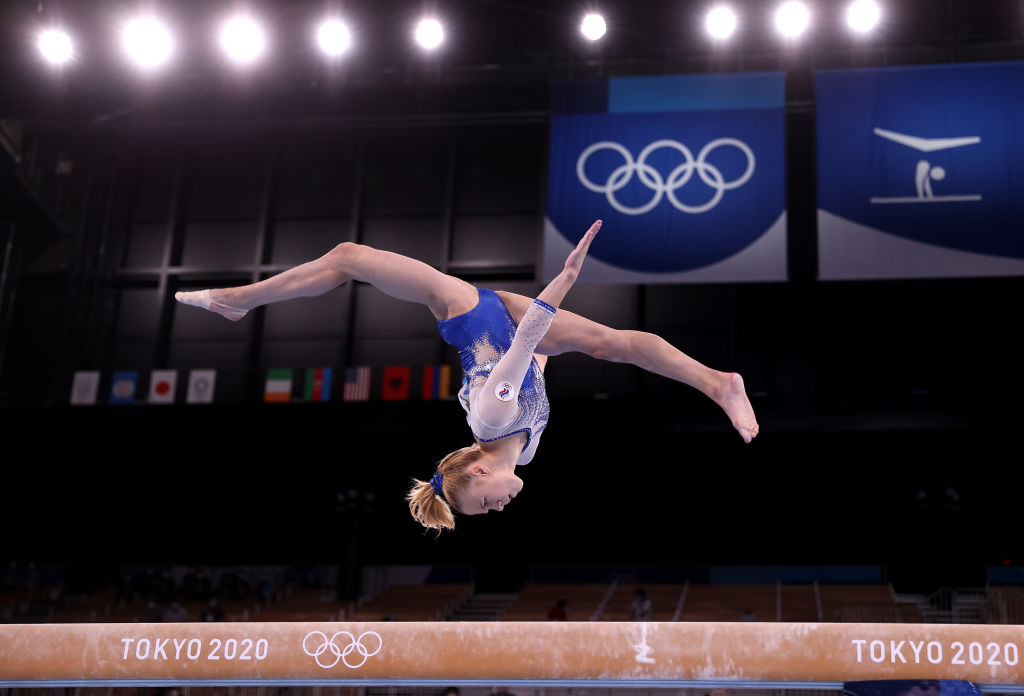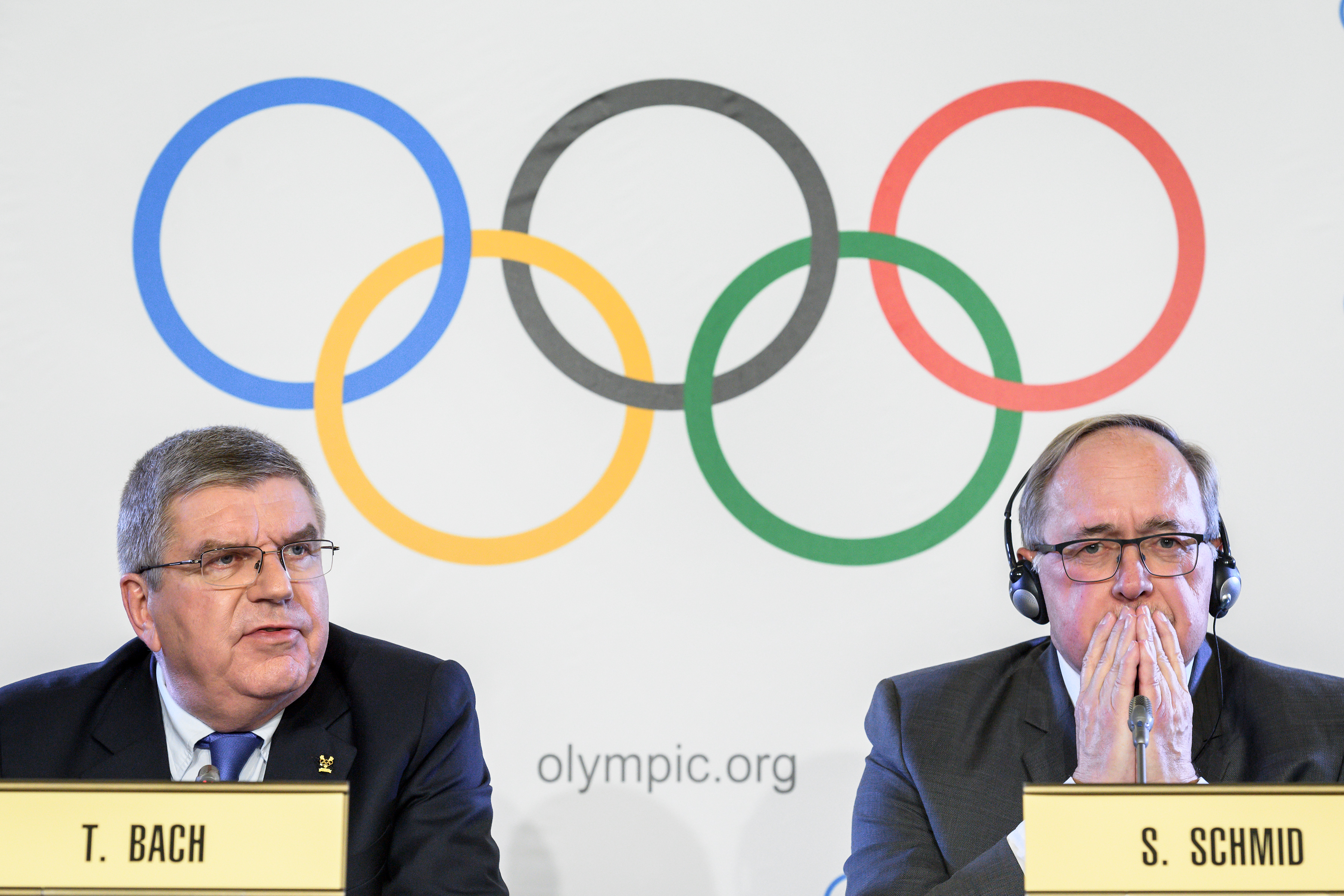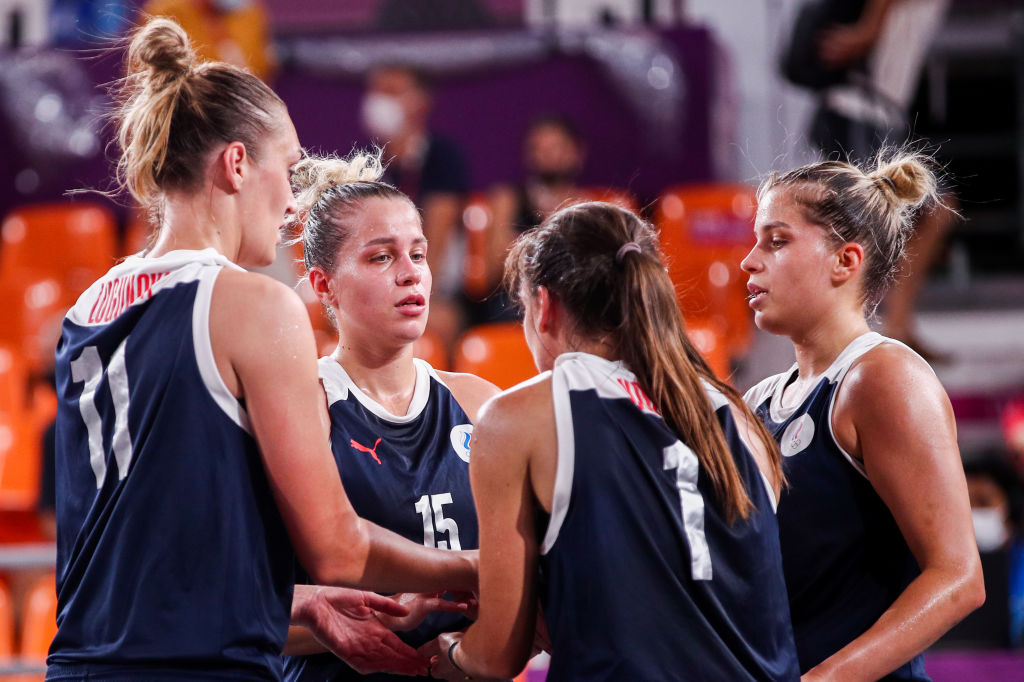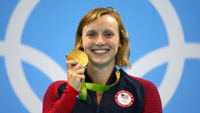Why is Russia called the ROC and what does that change when they win?
Russian athletes are competing under a neutral designation. Here's why...

Athletes from Russia are barred from representing the nation in the Olympics, Paralympics, or World Championships from December 2020 to December 2022. The ban explains why Russia is called the ROC at the Tokyo Olympic Games.
The ban is a penalty that was put in place after a state-sponsored doping program was uncovered in 2016. This investigation resulted in Russian athletes from the 2014 Olympics being stripped of their medals.
Why is Russia called the ROC?
This year, there are 335 Russians competing in the 2020 Tokyo Olympics in 2021. They will also compete as the ROC during the 2022 Beijing Olympics.
The ROC stands for the Russian Olympic Committee. Russian athletes can compete as part of the ROC instead of representing Russia. The designation is meant to be neutral and was created after Russia was banned.
Why does the ROC exist?

International Olympic Committee President Thomas Bach (L) and Chairman of IOC Inquiry Commission into alleged Russian doping at Sochi 2014 Swiss Samuel Schmid attend a press conference following an executive meeting on Russian doping, on December 5, 2017 in Lausanne.
In 2015, the World Anti-Doping Agency (WADA) led an independent commission that found the Russian Anti-Doping Agency had worked with other state agencies to cover up positive tests.
At least 15 athletes who won medals in the 2014 Olympics in Sochi, Russia were implicated in the doping scheme. As punishment, WADA recommended that Russia be banned from the 2016 Rio Olympics, but the International Olympic Committee (IOC) disagreed. The Court of Arbitration instead cleared certain athletes to participate and removed others.
In 2017, the IOC said Russia would not be able to participate in the 2018 Pyeongchang Olympics, but athletes could compete as neutrals. In that Olympics, they competed as the Olympic Athletes from Russia.
Sign up to our free daily email for the latest royal and entertainment news, interesting opinion, expert advice on styling and beauty trends, and no-nonsense guides to the health and wellness questions you want answered.
A 2019 investigation found inconsistencies in anti-doping data and the Russian Anti-Doping Agency was implicated again.
"For too long, Russian doping has detracted from clean sport. The blatant breach by the Russian authorities of Rusada's reinstatement conditions demanded a robust response. That is exactly what has been delivered," WADA President Sir Craig Reedie told the BBC.
You might also like...
Katie Ledecky's medal prospects are the cherry on top of an astonishing swimming career! She has won the most gold medals in women’s swimming history.
What is the difference between the ROC and Russia?

Russia's players gesture during the women's first round 3x3 basketball match between France and Russia during the Tokyo 2020 Olympic Games.
Athletes competing under the ROC designation are not allowed to wear the Russian flag or other national memorabilia or symbols on their uniforms. However, they will wear uniforms in the colors of Russia’s flag. When an athlete wins a gold medal, Tchaikovsky’s Piano Concerto No. 1 is played instead of the Russian national anthem.
How long does Russia's ban last?
The ban was meant to last four years, but the Court of Arbitration for Sports reduced it to two. Only athletes that were not involved in the doping scandal are allowed to compete.
“We at WADA remain disappointed that [the Court of Arbitration for Sport] has decreased the level of the sanctions from four years to two years and that CAS allows them to compete for Russian athletes with the colors of the flag in the uniforms,” WADA President Witold Bańka said, per USA TODAY Sports.
Rebecca Holland is a travel and food writer based in Chicago. She has written for the Guardian, New York Times, Architectural Digest, Food & Wine, Wine Enthusiast and more. She is currently a graduate student at Northwestern's Medill School of Journalism. When not working, you can find her eating her way through Chicago's neighborhoods, or in non-pandemic times, traveling around the world.
